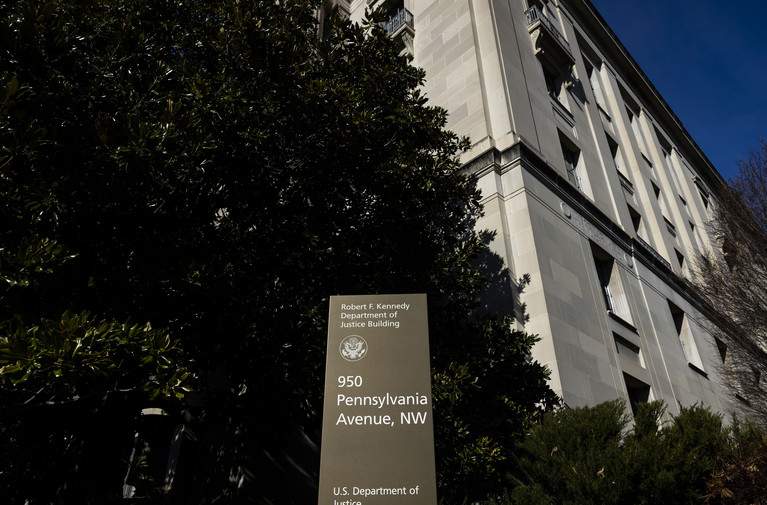Clients Think DOJ Is Open to Deals in Health Insurance Fraud Crackdown
In recent months, the U.S. Department of Justice (DOJ) has intensified its focus on health insurance fraud, with high-profile actions signaling a robust approach to tackling fraudulent practices in the industry. However, clients and industry insiders are buzzing with speculation that the DOJ may be open to cutting deals with companies and individuals implicated in these schemes, potentially reshaping the landscape of enforcement and compliance.
DOJ’s Aggressive Stance on Fraud
The DOJ’s recent initiatives, including the 2025 National Health Care Fraud Takedown, have spotlighted massive fraudulent activities. The takedown resulted in charges against 324 defendants, including 96 medical professionals, accused of submitting over $14.6 billion in fraudulent claims to Medicare, Medicaid, and private insurers. A notable case, dubbed Operation Gold Rush, involved a transnational criminal organization allegedly responsible for $12 billion in fraudulent claims, marking it as one of the largest health care fraud cases in U.S. history.
Additionally, in May 2025, the DOJ filed a False Claims Act complaint against three major health insurers—Aetna, Elevance Health, and Humana—and three large insurance brokers, alleging they paid hundreds of millions in illegal kickbacks to steer Medicare Advantage beneficiaries toward specific plans. These actions suggest a DOJ determined to hold industry giants accountable for practices that prioritize profit over patient care.
Whispers of Deals in the Air
Despite the DOJ’s aggressive rhetoric, clients and industry observers are picking up on signals that the department may be open to negotiating resolutions. Sources within the insurance sector report that the DOJ’s approach, while firm, includes opportunities for companies to settle cases through financial penalties or compliance agreements rather than face prolonged litigation. “The DOJ wants to send a message, but they also know dragging every case through court isn’t practical,” said one insurance executive, speaking anonymously. “Clients think this DOJ wants to cut deals to clean up the industry without crippling it.”
This perception stems from the DOJ’s history of settling high-profile cases under the False Claims Act, where companies often pay substantial fines but avoid criminal convictions that could devastate their operations. For instance, in the Medicare Advantage kickback case, Humana’s public response emphasized defending itself vigorously but didn’t rule out negotiations, hinting at openness to a resolution.
Why the DOJ Might Be Open to Deals
Several factors fuel speculation about the DOJ’s willingness to negotiate:
- Scale of Fraud: The sheer volume of cases, with billions in alleged fraudulent claims, could overwhelm judicial resources. Settling cases allows the DOJ to recover funds efficiently and redirect resources to other investigations.
- Industry Impact: Completely dismantling major insurers or brokers could disrupt healthcare access for millions, a consequence the DOJ likely wants to avoid. Negotiated settlements with strict compliance measures could achieve reform without destabilizing the market.
- Precedent: Past DOJ actions, such as those against pharmaceutical companies, often ended in settlements with hefty fines but allowed companies to continue operating under stricter oversight.
Client Reactions and Industry Implications
Clients, particularly smaller insurance brokers and providers, are cautiously optimistic about the DOJ’s approach. Many feel caught in a complex regulatory landscape where large insurers dictate terms, leaving smaller players vulnerable to scrutiny. The Insurance Marketing Coalition (IMC) recently defended ethical brokers, arguing that the DOJ’s allegations unfairly paint the entire industry as problematic. They suggest that settlements could clarify compliance expectations and level the playing field.
However, some clients worry that settlements could favor larger corporations with the resources to negotiate, leaving smaller entities facing harsher penalties. “Big players can afford the fines and lawyers to cut a deal,” noted a regional broker. “Smaller firms might not get the same leniency.”
Looking Ahead
As the DOJ continues its crackdown, the insurance industry is bracing for a new era of oversight. Whether through settlements or courtroom battles, the DOJ’s actions are pushing companies to reevaluate compliance practices and prioritize transparency. For clients, the hope is that any deals struck will not only penalize wrongdoers but also foster a fairer, more consumer-focused insurance market.
The coming months will reveal whether the DOJ’s tough talk translates into transformative settlements or prolonged legal fights. For now, clients and industry watchers are keeping a close eye on Washington, sensing that the DOJ’s next moves could redefine the future of health insurance accountability.
Sources: U.S. Department of Justice, The Washington Post, Newsweek, Insurance Marketing Coalition
